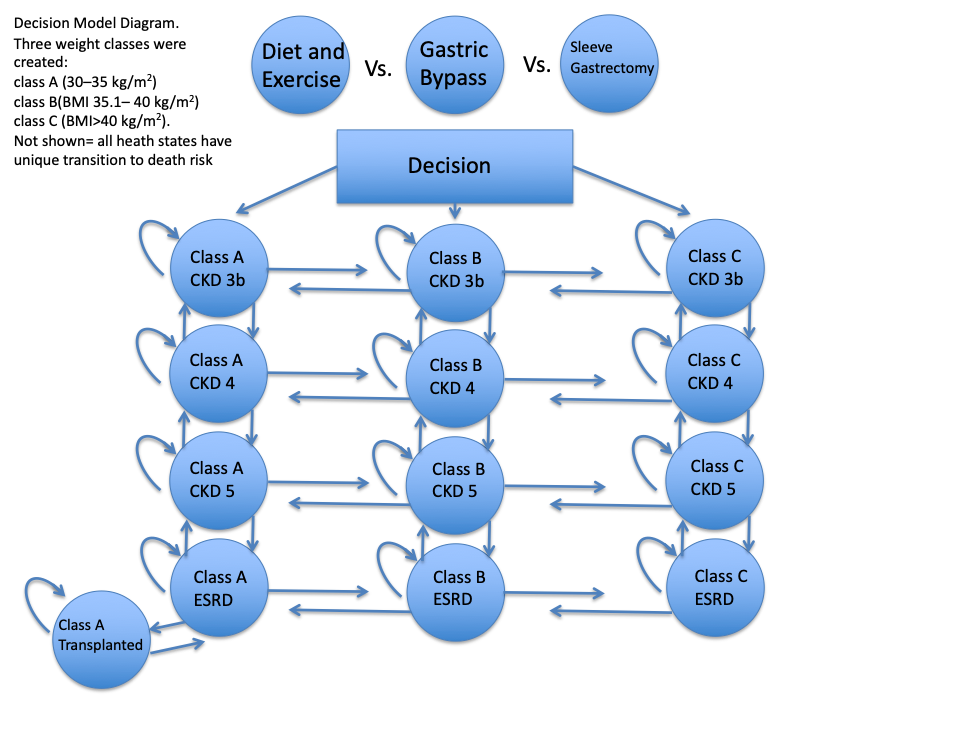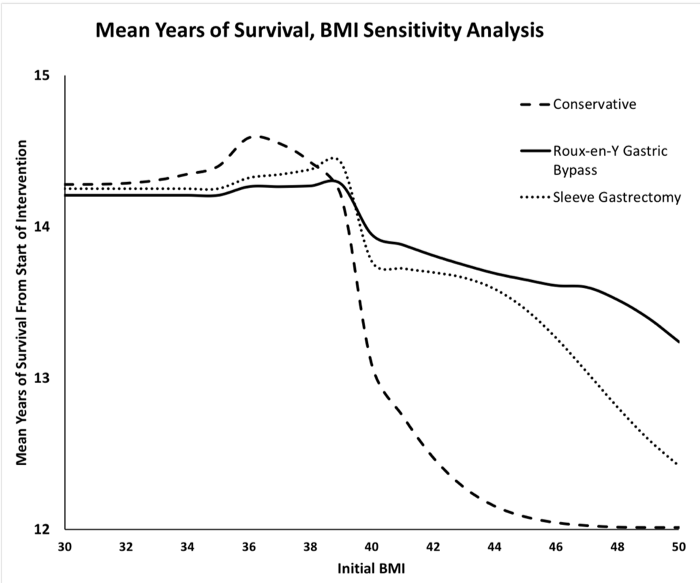Reverse Epidemiology and the Obesity Paradox for Patients with Chronic Kidney Disease
R. A. Choudhury1, D. Yoeli1, H. B. Moore1, H. Yaffe1, G. Hoeltzel2, K. R. Dumon3, N. N. Williams3, P. L. Abt4, K. D. Conzen1, T. L. Nydam1
1Department of Surgery- Division of Transplantation Surgery, University of Colorado Hospital, Aurora, CO, 2Thomas Jefferson University Hospital, Philadelphia, PA, 3University of Pennsylvania Hospital, Philadelphia, PA, 4Department of Surgery- Division of Transplantation Surgery, University of Pennsylvania Hospital, Philadelphia, PA
Meeting: 2020 American Transplant Congress
Abstract number: B-050
Keywords: Kidney, Kidney transplantation, Obesity, Prediction models
Session Information
Session Name: Poster Session B: Kidney: Cardiovascular and Metabolic Complications
Session Type: Poster Session
Date: Saturday, May 30, 2020
Session Time: 3:15pm-4:00pm
 Presentation Time: 3:30pm-4:00pm
Presentation Time: 3:30pm-4:00pm
Location: Virtual
*Purpose: Obesity has been associated with both increased progression of chronic kidney disease as well as with a paradoxical improvement in survival among ESRD patients undergoing hemodialysis. As such, the optimal weight management strategy for obese CKD patients remains unclear.
*Methods: A decision analytic Markov state transition model was created to simulate the life of 30,000 obese patients with CKD stage 3b, as they progressed to ESRD, transplantation, and death. Life expectancy following conservative medical weight management (diet and exercise), Roux-en-Y Gastric Bypass (RYGB) and Sleeve Gastrectomy (SG) were estimated. Base case patients were defined as being 50 years old and having a pre-intervention BMI of 40 kg/m2. Sensitivity analysis of initial BMI was performed. All Markov parameters were extracted from literature review.
*Results: RYGB and SG were associated with improved survival for patients with pre-intervention BMI of > 39.6 kg/m2. Compared to conservative weight management, base case patients who underwent RYGB gained 10.3 months of life, and gained 8.2 months of life following SG.
*Conclusions: Balancing progression of CKD with improved survival on ESRD for obese patients requires selective use of weight management strategies. RYGB and SG improved survival for CKD patients with Class III obesity, but not for patients with Class I and Class II obesity. As such aggressive weight loss interventions should be reserved for patients with Class III obesity, while more conservative methods should be offered to those with Class I and II obesity.
To cite this abstract in AMA style:
Choudhury RA, Yoeli D, Moore HB, Yaffe H, Hoeltzel G, Dumon KR, Williams NN, Abt PL, Conzen KD, Nydam TL. Reverse Epidemiology and the Obesity Paradox for Patients with Chronic Kidney Disease [abstract]. Am J Transplant. 2020; 20 (suppl 3). https://atcmeetingabstracts.com/abstract/reverse-epidemiology-and-the-obesity-paradox-for-patients-with-chronic-kidney-disease/. Accessed July 18, 2025.« Back to 2020 American Transplant Congress


